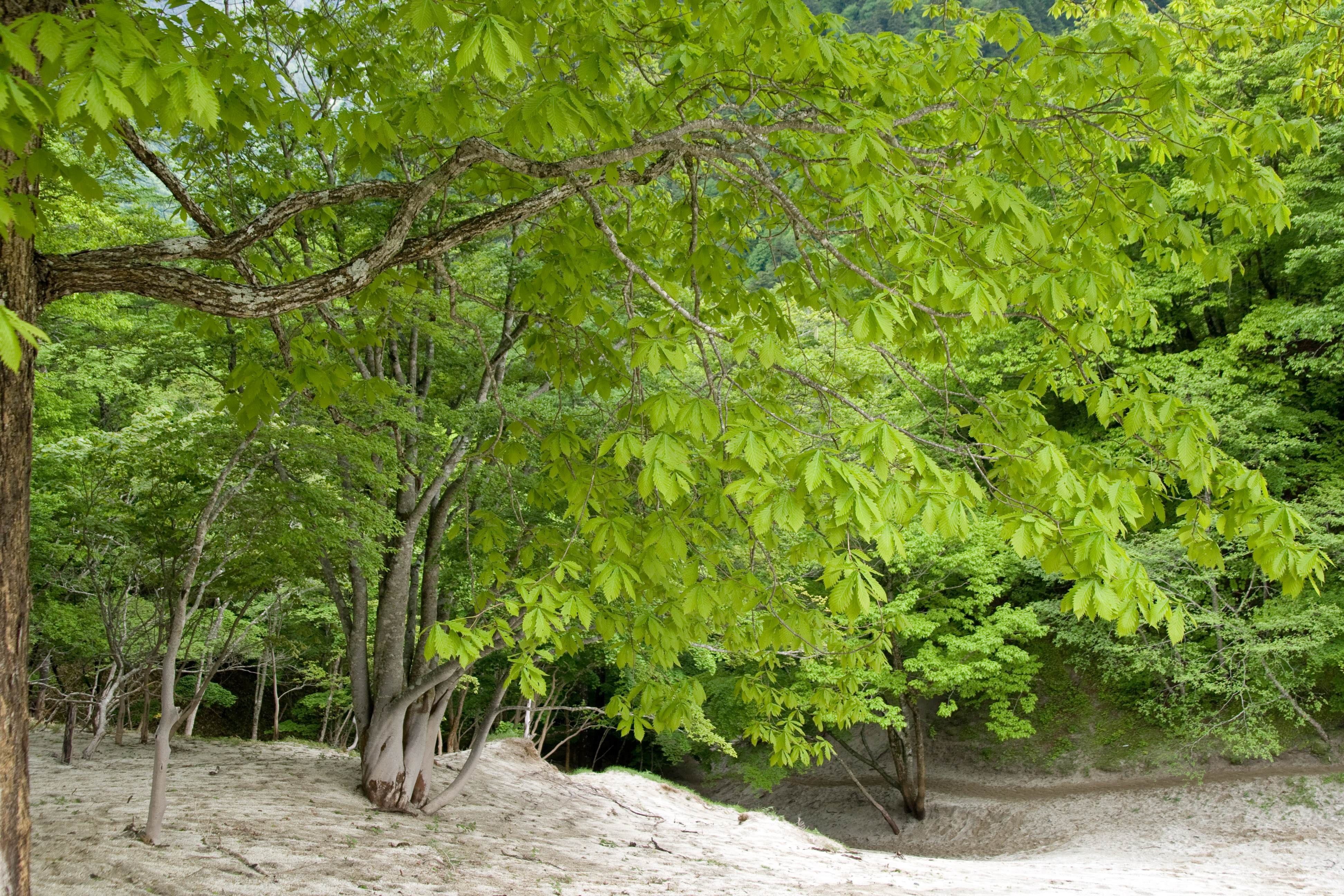We’re back after a short break, and before reaching my own 200th whisky review and start a series with some closed distilleries, let’s do a quick trip between Ireland and Japan. What we’re tasting today is an Irish whiskey bottled by Glendalough, that has been finished in Japanese Mizunara oak casks. It had been some months since I wanted to try this whiskey… and I had kind of forgot my good friend Wim @dram_gazette had sent me a sample ages ago! So let’s talk a bit about Glendalough and about what Mizunara is, then we’ll review the Glendalough 13-year-old Mizunara oak finish.
Glendalough Distillery
Glendalough Co Wicklow (the Valley of Two Lakes) is one of Ireland’s most beautiful visitors’ destinations, visited for centuries thanks to its spectacular scenery, history, archaeology and wildlife. The Glendalough distillery was founded in 2012 and started as an independent bottler, for its first three years, bottling single malt and single grain that may come from Cooley. In 2015, they started distilling gin, while still bottling sourced whiskey. A year later, Mark Anthony Brands, a Canadian drinks distribution group, acquired 40% of the distillery, investing €5.5m, and by 2019 they acquired the entirety of the shares.

Mizunara?
Mizunara is a kind of oak growing in the forests of the island of Hokkaido, in the north-west of Japan, rugged and volcanic. This oak, also known as Quercus crispula, is a deciduous broad-leaved tree that is considered as a variety of Mongolian oak (Quercus mongolica) by some authorities. This type of oak prefers cold climates and grows naturally from the mountains of Japan to the subalpine zone, and its Hokkaido varieties are considered to be of good quality. Japanese oak often refers to this Mizunara growing on Hokkaido.
At the end of World War II, Japan was amongst the countries having lost the war. Japan faced shortages of food, medicine and other daily necessities, as well as, even though it was far from being that important at the time, a lack of imported casks to age whisky. As whisky was popular with the occupational armed forces, the local distilleries needed to find a solution to age their spirit. They thus turned to their own oak, Mizunara. But why isn’t it more used?

Mizunara, meaning water oak, is a tree that does not grow straight and even tends to grow twisted. As its name implies, it has a high moisture content, and is also more porous than other Quercus varieties. This makes the casks made from Mizunara more prone to leaking, on top of the greater difficulty to cooper it as does not grow straight. Mizunara oak also takes around 200 years to grow before it can be used to make casks, and whilst some large distilleries have access to forests, local authorities often suspend logging operations in order to help the forests recover, so that Mizunara oak is scarce.
Mizunara oak has the lowest concentration of tannins of any kind of oak available for cask production, thus reducing the likelihood of the wood influencing the flavour of the distillate too much. However, maturing or even just finishing whisky in Mizunara casks usually get a distinctive sweet and spicy flavour, with quite often notes of sandalwood, vanilla, coconut and Japanese incense.
Glendalough 13-Year-Old Mizunara Oak Finish Review
The Glendalough 13 Mizunara is a sourced single malt, from Cooley it seems, that has been matured for 13 years in first fill ex-bourbon barrels. Then, it underwent a finish for up to a year in Mizunara puncheon sourced from the Ariake cooperage in the Miyazaki prefecture of Hokkaido Island, Japan. There is no mention of chill filtration or not, nor mention of colouring. Since it’s bottled at 46%, I suppose it hasn’t been chill filtered, and we’ll give them the benefit of the doubt and suppose it is not coloured either. It is unfortunately sold out and seemed to have been around £65 when it was out.

Colour:
Amontillado
Nose:
You’re greeted with a fruity nose at first, like apricot jam, but also with exotic fruits: pineapple and lychee. Spices are quite present as well without being overpowering: coriander, Christmas spices, gingerbread spices, and aniseed as well. Incense and sandalwood give out some nice Honey and vanilla with maybe a few coconut shavings from the American oak bourbon barrels shine through too. There’s an ever so slight soapy note in the background, but you have to look for it, and it is honestly not unpleasant.
Palate:
Thick and slightly drying mouthfeel, sweet and spicy arrival. It’s quite a bit oaky, with sandalwood and oak, but not too much. The spices (ginger, clove, nutmeg) are well integrated here. Milk chocolate, honey, and bitter nutty notes of almonds, walnuts and hazelnuts. Pine resin, wood polish, and in the background, some fruity notes, but kind of artificial, like fruit flavoured candies or chewing gum. No soap notes here at all.
Finish:
Spicy finish, slightly oaky, milk chocolate, the sandalwood and resin notes linger on for a good length.
Comments:
Lovely nose, with a lot going on: fruits, spices, wood notes, all working well together. There are some hints of soapy notes in the background, but light enough so that it stays far from being unpleasant, and more of an afterthought than anything. The palate is less intense and a notch down compared to the nose, with the finish being a tone down as well compared to the palate. But in the end, this is a highly drinkable whisky, on which the Mizunara finish imprinted its specific notes, for the best. Since then, Glendalough has released several new Mizunara finished expressions, from 7- to 17-year-old. The fun fact is that my friend Susanne reviewed the 7-year-old yesterday and you can read her review here.
Rating: 85/100
Thanks Wim for the sample!